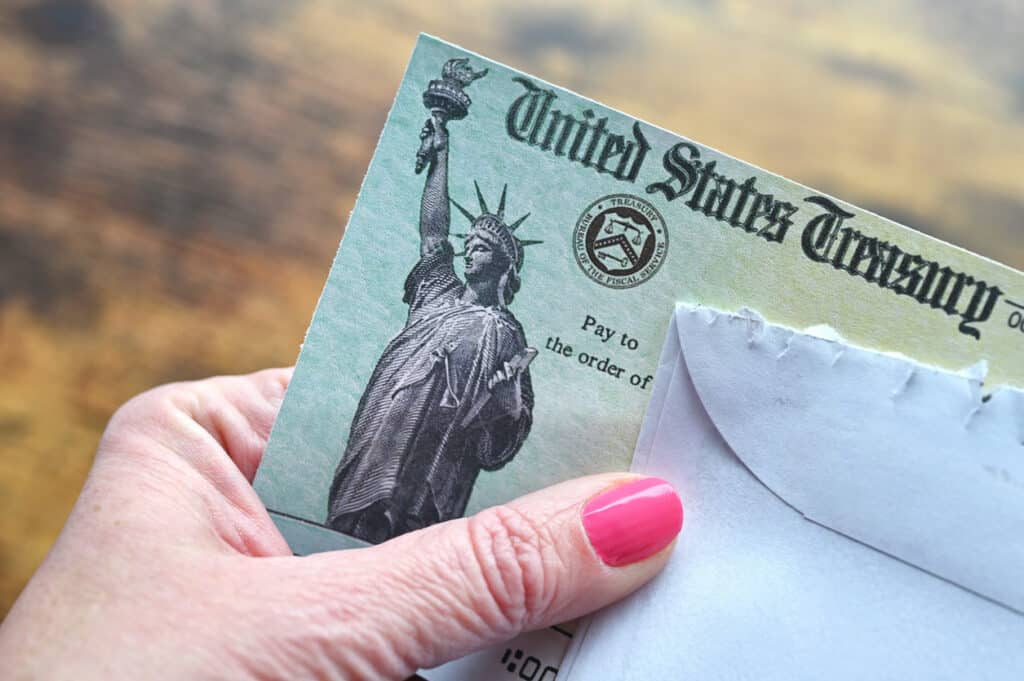Stimulus Payments for Americans, including expats, were announced as part of the Coronavirus Aid, Relief and Economic Security (CARES) Act, passed on March 27th. The purpose of the Stimulus Payments is to provide financial assistance to Americans impacted by the Coronavirus outbreak.
As of Friday May 8th, the IRS had sent 595,548 CARES Act Stimulus Payments to US expats around the world, at a total value of nearly $1 billion ($977,830,929), and with an average payment value of $1,641.90.
How much do expats receive?
The Stimulus Payment value that expats receive depends on several factors.
Firstly, their income levels, or more specifically their adjusted gross income (being income after deductions and other adjustments).
Expats with an adjusted gross income of up to $75,000 will receive a $1,200 Stimulus Payment, while expats with an adjusted gross income of $75,001-$99,000 will receive $5 less for every $100 over $75,000. Those with an adjusted gross income over $99,000 don’t receive anything.
For expats who file jointly with their spouse and whose spouse also has a US social security number, all of the above figures double. So those whose adjusted gross income is up to $150,000 receive $2,400, and after that it is reduced by $5 for every $100 over $150,000 until it phases out completely at $198,000.
Furthermore, qualifying expats with dependent children under the age of 17 who have US social security numbers receive a $500 extra per child.
So an American couple who live abroad and have two children with US social security numbers will receive a total Stimulus Payment of $3,400.
When calculating payment values, the IRS looks at expats’ adjusted gross income in their 2019 US tax return, or if they haven’t filed for 2019 yet, then their 2018 tax return. Expats who haven’t filed for either 2019 or 2018 should ensure that they catch up carefully, perhaps using an amnesty program such as the Streamlined Procedure depending on their situation, to ensure they receive a Stimulus Payment but without also receiving a bill for back taxes or penalties.
“More than 85% of people who are eligible for stimulus money have already gotten the cash. Many of those people didn’t have to update their bank account information because the IRS already had it on file from a 2018 or 2019 tax return.”- CNN
Stimulus checks are paid by direct deposit into a US bank account.
Can expats who don’t have a US bank account still receive a stimulus payment?
Expats who provided US bank details on their most recent US tax return will receive their stimulus payment by direct deposit automatically.
For those who didn’t, the IRS has set up an online tool called Get My Payment that allows expats to provide US bank account details – although the IRS has announced that they must do so by Wednesday May 13th.
Expats who don’t have a US bank account have two choices: open one, or receive a check by mail at the address provided in their most recent tax return.
Expats who don’t want to receive a check by mail and who don’t have a US address that they can use to open a US bank account may still have options. For example, ACA (American Citizens Abroad) members meanwhile can open an account with the State Department Federal Credit Union (SDFCU). Bright!Tax clients can join ACA at a 50% discount.
Final thoughts
So long as expats who haven’t filed either 2018 or 2019 catch up before October 15th, providing their bank details when they do, they will still receive a Stimulus Payment. These expats should seek advice from a reputable US expat tax specialist to ensure they catch up without facing penalties or unnecessary back taxes.
For those who are compliant, the IRS has advised that they should provide US bank details in the Get My Payment tool as soon as possible to ensure that they receive the payment quickly. Payments will continue to be paid until the end of the year though.

 Connect on LinkedIn
Connect on LinkedIn

